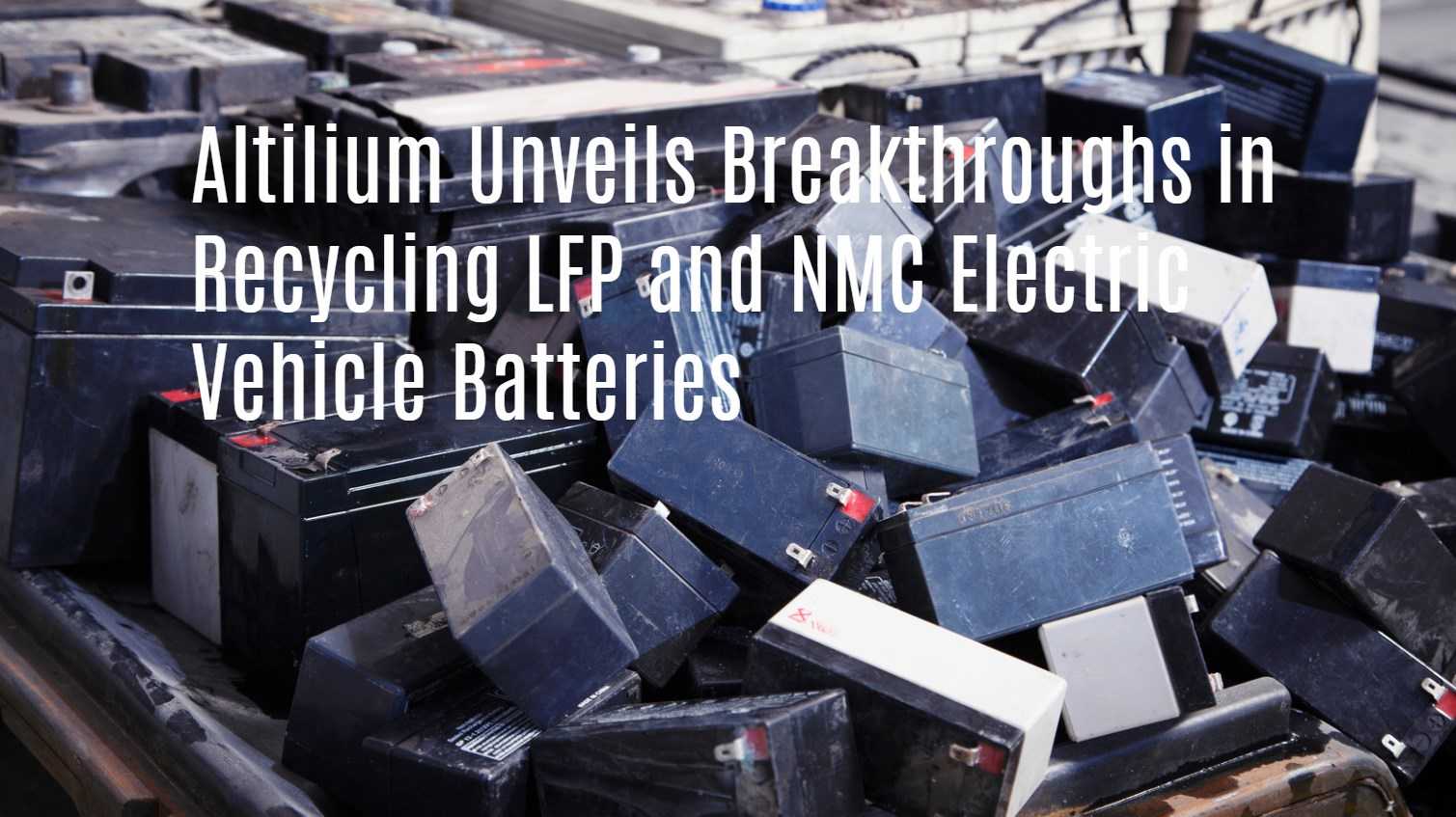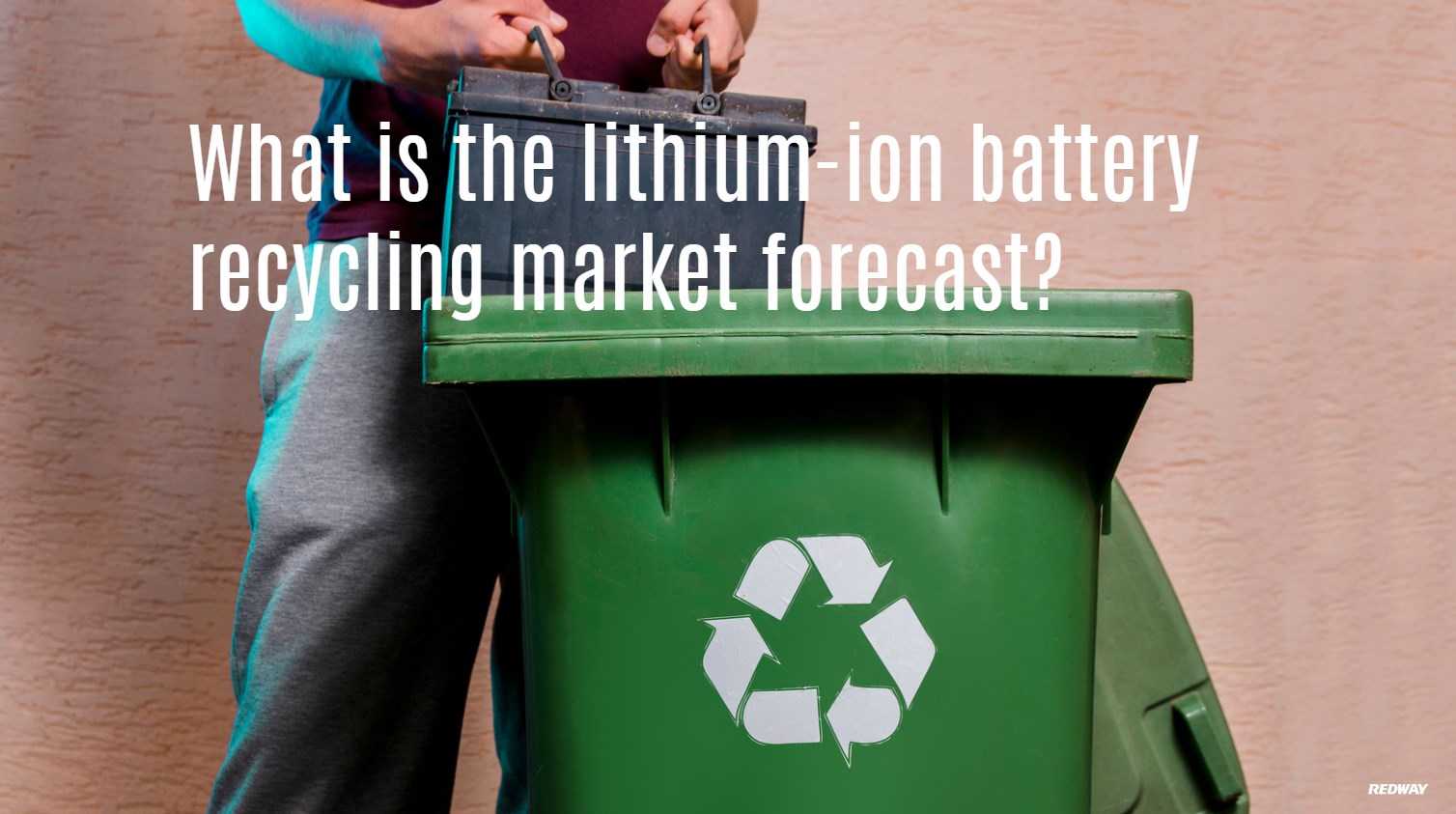Altilium announces technological advancements in recycling LFP and NMC electric vehicle batteries. They have demonstrated the ability to recycle both types of batteries, which is crucial for developing a sustainable circular economy for battery materials.
- Technological Advancements: Altilium has made significant strides in recycling LFP and NMC electric vehicle batteries.
- Recycling Capabilities: They have demonstrated the ability to recycle both types of batteries, contributing to a sustainable circular economy for battery materials.
- Environmental Impact: These breakthroughs support responsible and efficient management of electric vehicle battery waste, promoting sustainability in the electric vehicle industry.
By pushing the boundaries of battery recycling technology, Altilium plays a crucial role in minimizing waste and maximizing the environmental benefits of electric vehicle batteries.
Altilium, who is that?
Altilium is a clean technology group based in the UK that focuses on developing sustainable and low-carbon battery materials. They play a crucial role in supporting the global energy sector’s shift from fossil-based to zero-carbon sources. Altilium’s innovative solutions contribute to the development of a cleaner and more sustainable energy landscape.
Who is the leader in EV battery recycling?
China is the world leader in EV battery recycling, with a strong focus on the collection and recycling management of lithium-ion batteries used in electric vehicles. Their efforts contribute to the development of a sustainable and circular economy for battery materials.
- Global Leadership: China leads the world in EV battery recycling, focusing on the collection and recycling management of lithium-ion batteries.
- Sustainable Practices: Their efforts contribute to the development of a circular economy for battery materials, promoting sustainability in the electric vehicle industry.
Through their leadership in EV battery recycling, China plays a crucial role in minimizing waste and maximizing the environmental benefits of electric vehicle batteries.
What is the future of battery recycling?
The future of battery recycling is promising. As the demand for electric vehicles continues to rise, battery recycling is becoming increasingly important. By 2050, recycled batteries are expected to account for approximately half of the nickel and lithium supply. Investment in research and technology is driving the development of more efficient and sustainable battery recycling methods.
- Rising Demand: The exponential growth of electric vehicles is driving increased demand for battery recycling.
- Recycled Battery Supply: By 2050, recycled batteries are projected to account for around half of the nickel and lithium supply.
- Research and Technology: Investment in research and technology is paving the way for more efficient and sustainable battery recycling methods.
As the industry focuses on innovation and sustainability, the future of battery recycling holds the potential to create a more circular and environmentally friendly approach to managing battery waste.
Who are the key players in battery recycling?
The key players in battery recycling include Accurec Recycling GmbH, Aqua Metals, Battery Solutions, Call2recycle Inc., Eco-Bat Technologies, Enersys, Exide Technologies, and G&P. These companies are leading the way in sustainable battery recycling practices.
- Accurec Recycling GmbH: This company is at the forefront of battery recycling, promoting sustainable practices.
- Aqua Metals: They contribute to the responsible management of battery waste through their innovative recycling solutions.
- Battery Solutions, Call2recycle Inc., Eco-Bat Technologies, Enersys, Exide Technologies, and G&P: These companies play a significant role in developing sustainable battery recycling practices.
Together, these key players contribute to the advancement of battery recycling, promoting sustainability and responsible waste management.
What is the lithium-ion battery recycling market forecast?
The global lithium-ion battery recycling market is projected to reach $26.7 billion by 2031, growing at a CAGR of 18.65% during the forecast period for 2024-2031.
- Market Forecast: The global lithium-ion battery recycling market is projected to reach $26.7 billion by 2031.
- Growth Rate: The market is anticipated to grow at a CAGR of 18.65% during the forecast period from 2024 to 2031.
- Rising Demand: These forecasts reflect the increasing demand for battery recycling as the adoption of lithium-ion batteries continues to rise.
The projected growth of the lithium-ion battery recycling market indicates a positive future for sustainable and efficient battery waste management.
How much profit is being made from EV battery recycling?
The EV battery recycling market was worth $1.5 billion in 2019 and is projected to reach $12.2 billion by 2025. The increasing demand for battery recycling, driven by the growing adoption of electric vehicles, contributes to the profit potential of the industry.
- Market Size: The battery recycling market was valued at $1.5 billion in 2019 and is projected to reach $12.2 billion by 2025.
- Growing Demand: The increasing adoption of electric vehicles drives the demand for battery recycling, contributing to the profit potential of the industry.
- Sustainability and Value Creation: The industry’s focus on sustainability and value creation enhances the profit potential of EV battery recycling.
As the market continues to grow, the profit potential of EV battery recycling expands, driven by the increasing demand for sustainable and efficient battery waste management.
Why can’t you recycle EV batteries?
EV batteries, including lithium-ion batteries, are recyclable. However, the recycling process may not recover all the materials completely due to their lower value, especially components like plastics that may not be economically viable to recycle.
- Recyclability: EV batteries, including lithium-ion batteries, can be recycled.
- Limitations in Recycling: Some materials, like plastics, may not be fully recycled due to their lower value.
- Economic Viability: The recycling process focuses on recovering valuable metals, but other components may not be economically viable to recycle.
Efforts are being made to improve recycling technologies and maximize the recovery of materials from EV batteries.





